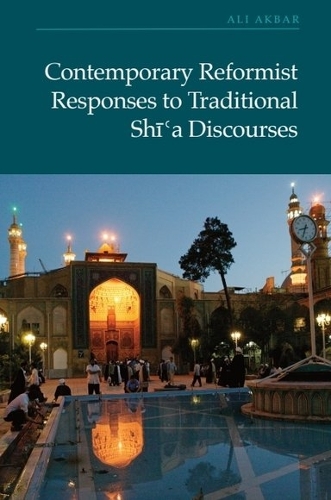
Contemporary Reformist Responses to Traditional Shi'a Discourses
(Hardback)
Publishing Details
Contemporary Reformist Responses to Traditional Shi'a Discourses
By (Author) Ali Akbar
Edinburgh University Press
Edinburgh University Press
7th January 2026
United Kingdom
Classifications
Tertiary Education
Non Fiction
Physical Properties
Hardback
240
Width 156mm, Height 234mm
Description
Based on Persian and Arabic primary sources such as seminal jurisprudential works, fatwas, articles and interviews, this book explores how contemporary Shiism has broken away from traditional religious discourses. Ali Akbar examines how prominent scholars from Iran, Iraq and Lebanon who operate from within Shia tradition have paved the way for new interpretations of Islam in general and of Shiism in particular.
The book investigates the extent to which reformist Shia scholarship has shifted towards post-Islamist discourses in response to four key areas encompassing theological, social and political issues: relationships between Muslims and people of other faiths, with an emphasis on the concept of ritual purity; freedom of religion; women's rights; and state-religion relationship and democratic norms. Akbar offers an up-to-date and interdisciplinary examination of contemporary Shia scholars' use of tools and strategies to instigate reform.
Author Bio
Dr. Ali Akbar is a lecturer and researcher at the University of Melbourne in Australia where he received his PhD in Islamic Studies. He is an expert in the fields of Islamic Studies with a focus on contemporary Islamic thought and Middle Eastern politics as well as Iranian politics with a focus on Iran's foreign policy in the Middle East and beyond. He is co-author of Iran's Soft Power in Afghanistan and Pakistan (Edinburgh University Press, 2023) as well as lead author of Contemporary Approaches to the Qur'an and Its Interpretation in Iran (Routledge, 2020) and sole author of Contemporary Perspectives on Revelation and Qur'anic Hermeneutics (Edinburgh University Press, 2020). In addition to these books, Dr. Akbar has published extensively in top-tier journals including Islam and Christian-Muslim Relations, British Journal of Middle East Studies, Iranian Studies, Mediterranean Politics, Third Word Quarterly and Political Theology.
